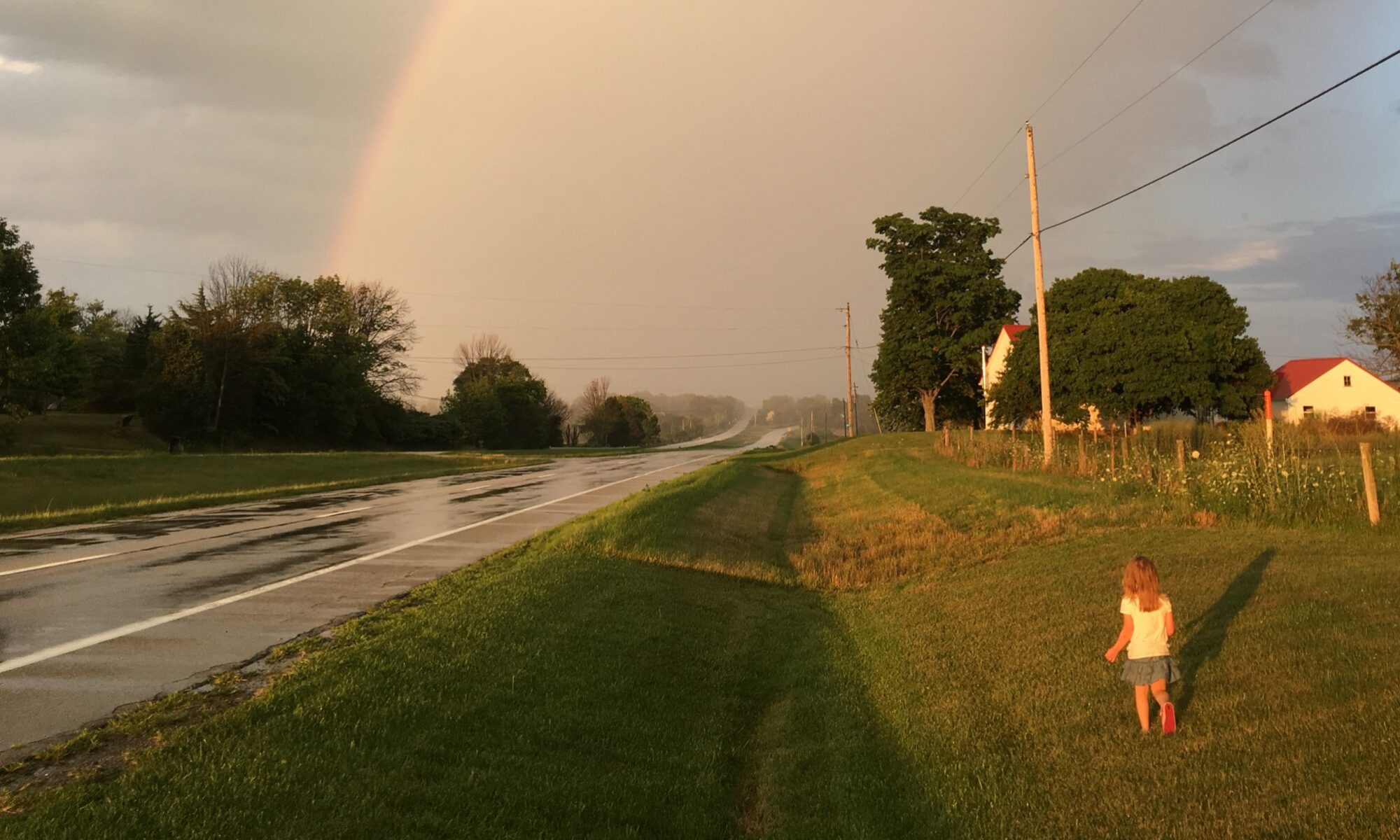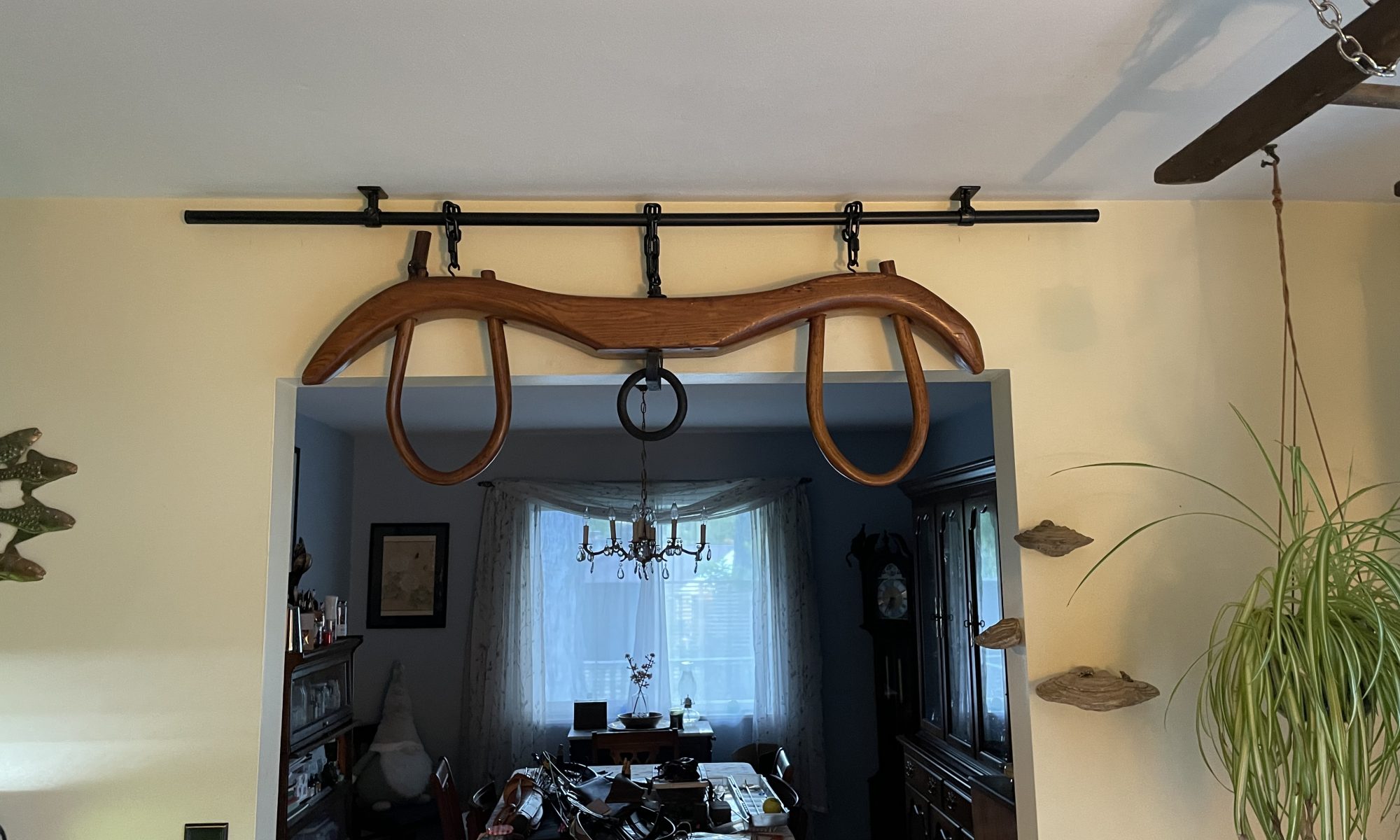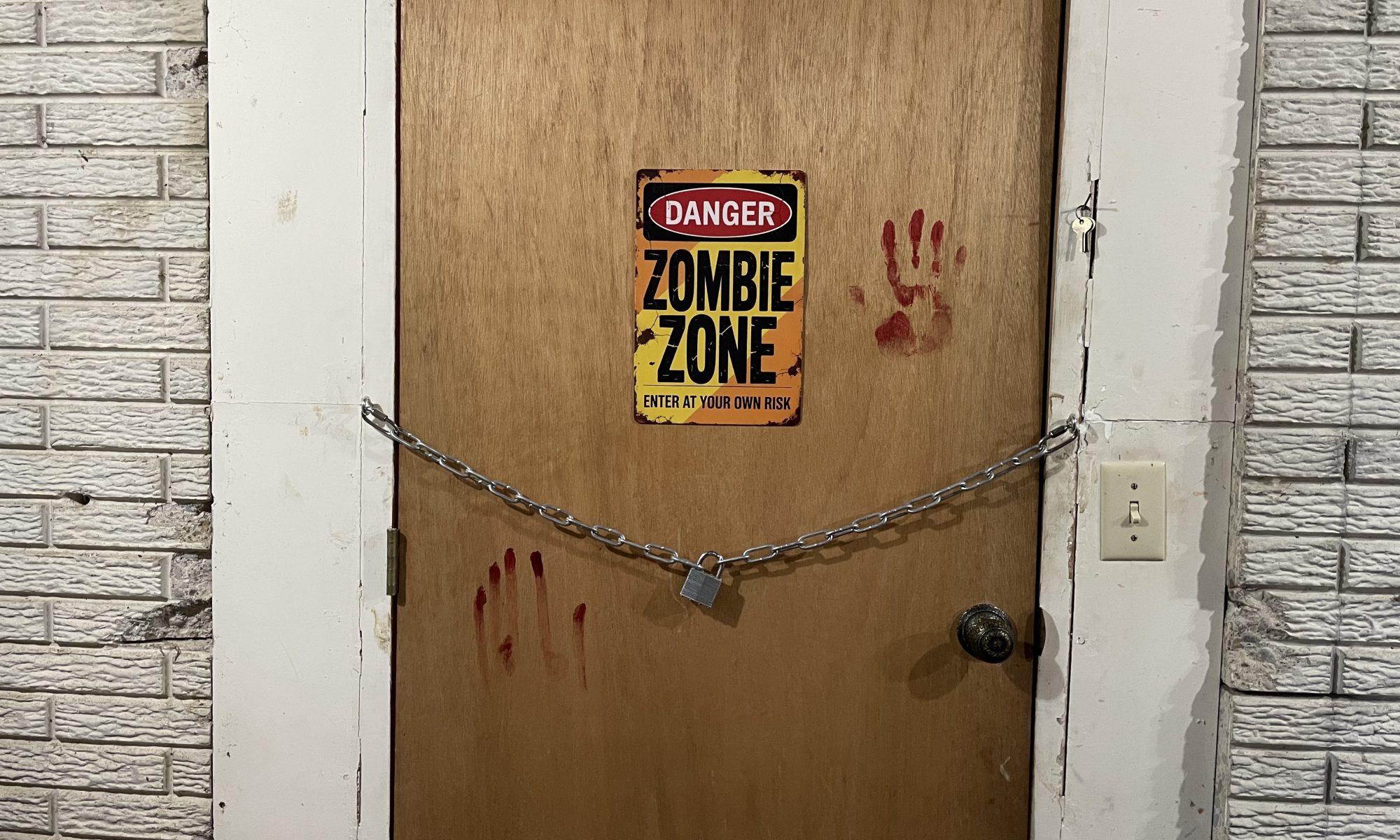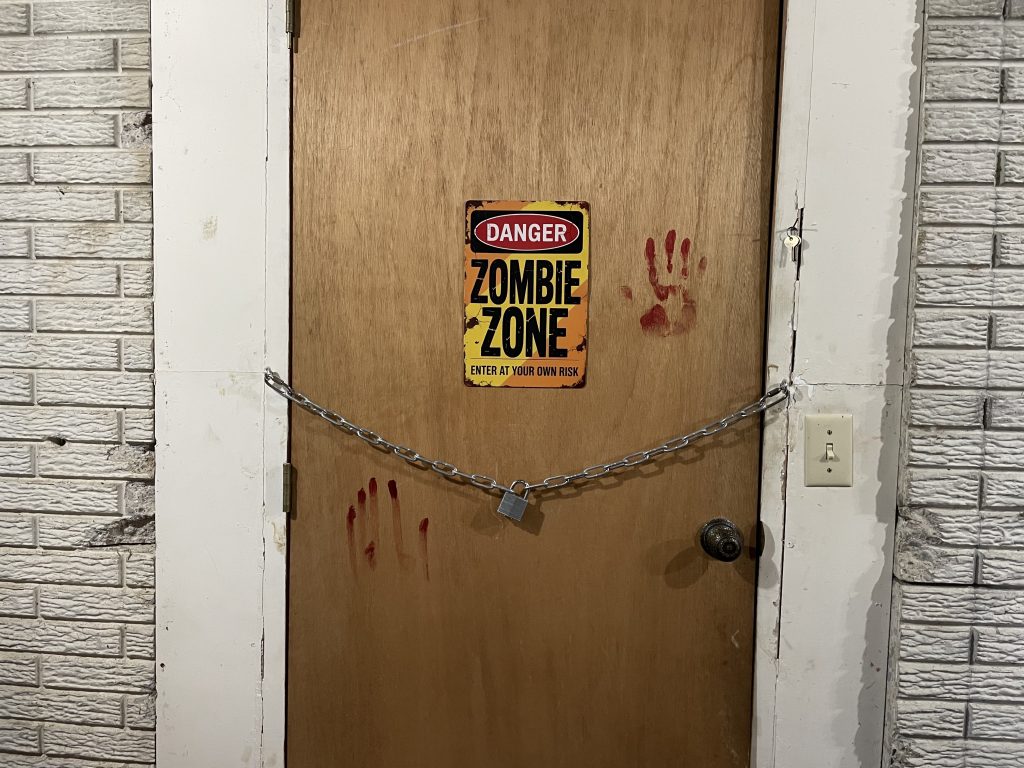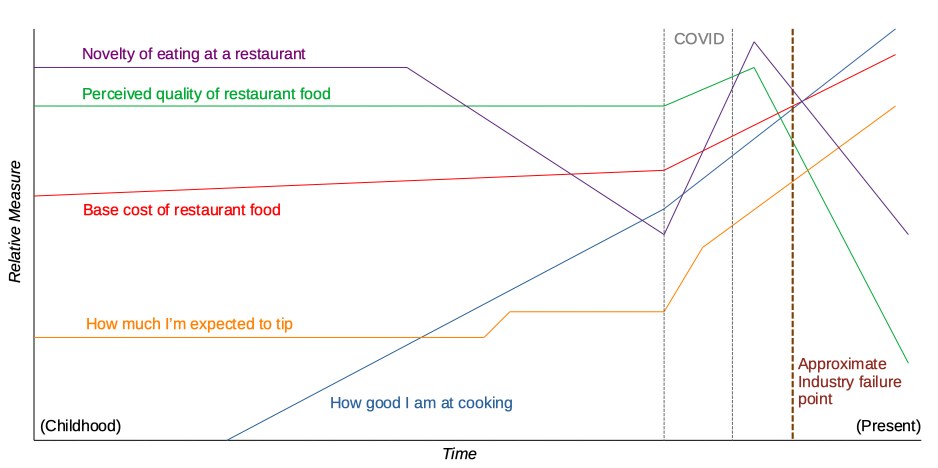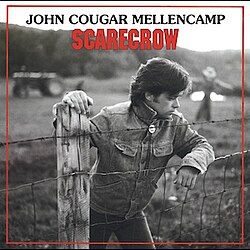
Family legend has it that the old family farm, which my grandparents ultimately sold (yet another example of the ongoing death of all small family farms), was an original land grant plot parceled out as government payment to a veteran of the Continental Army.
My grandparents didn’t inherit this property. They acquired it sometime in the late 1950s, after my father had been born. I haven’t dug that deeply into the Moorheads’ lineage, so I don’t know offhand the level of our involvement in the American Revolutionary War. “Moorhead” – head of the moors – is Scottish by origin, hailing from the lowlands – Glasgow region. (That might explain something about my family’s temperament.) And the Lowland Scots immigrated in the 1700s, so it’s possible. And that group supposedly immigrated voluntarily to New England cities, and were supposedly of the more professional and merchant classes. Dunno why my family ended up farming. I assume it was more lucrative back then.
But it checks out with my own genetics test, which pinpoints a high percentage of my bloodline coming through Pennsylvania. And Philadelphia is a specific city called out in the Lowland Scots’ immigration paths. So this all aligns roughly: At some point when the country was young, the Moorheads came to Pennsylvania and migrated west to Ohio.
Anyway, back to the farm.
When the farm was acquired, it included some items with the property. The specific item of note for the purpose of this post is an ox yoke. It’s very old, naturally. Remember, the plot of land was very old, and always used for agriculture, and presumably it dated back to the original owners. That part’s oral history. Like so much of family history, it can’t definitively be verified. But if it’s true, it’s a cool story.
The yoke always hung in the farmhouse, then my grandparents’ retirement house, then it passed to dad. And just recently, he granted me stewardship. As the last blood-born male heir to the Moorhead line, it needed to be honored appropriately. And I had just the spot for it.

Thanks to the AirBnB movement, there are a lot of rustic-themed mounting options. For this application, I chose an iron pipe with applicable fittings. The idea was to compensate for the ceiling joists not being centered over the archway.
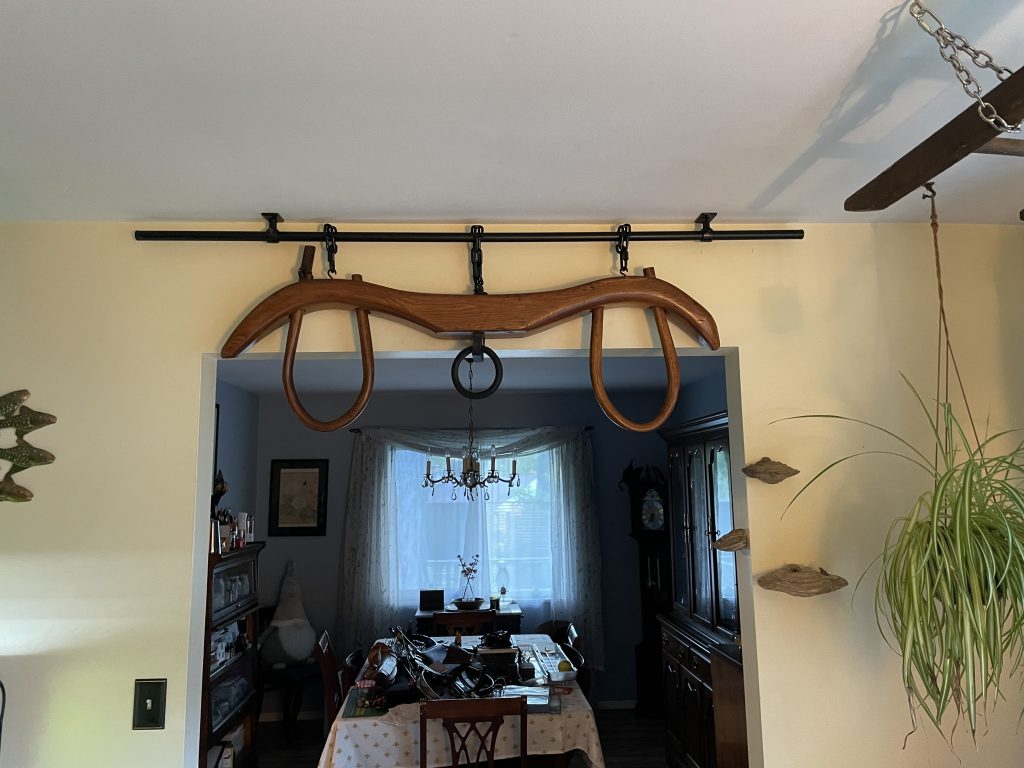
Ta-daa!
Since my grandfather refinished it, any monetary value it might have is strictly personal. But that’s all right with me, since it fits the nostalgia bill properly, like the old farmhouse shotgun.
May it survive to pass to the next generation.
–Simon
